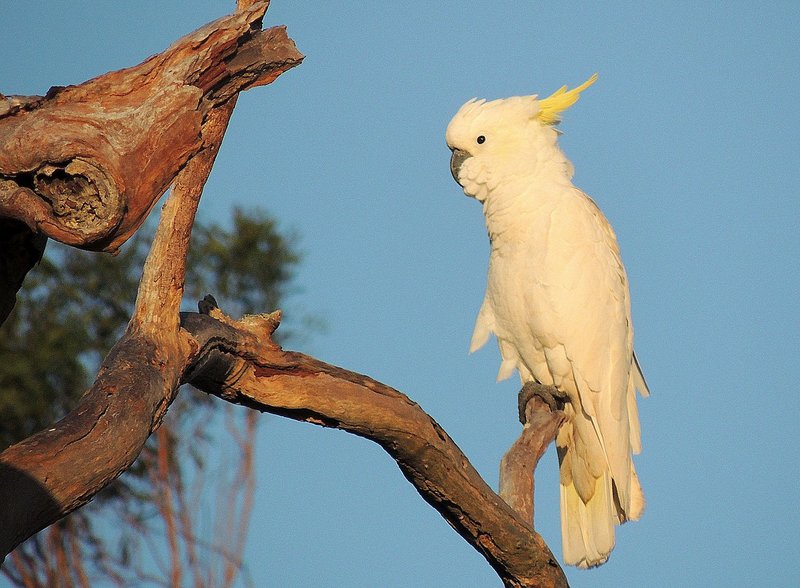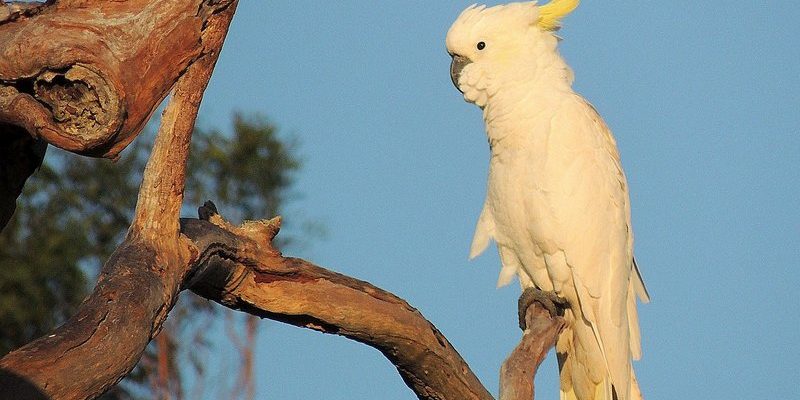
Cockatoos belong to the family *Cacatuidae*, and they’re known for their impressive crests and expressive behavior. They’re not just birds; they’re companions, entertainers, and, honestly, a little bit of mystery. So, whether you’re a bird enthusiast or just curious, let’s dive into ten things you might not know about these fascinating feathered friends!
Cockatoos Are Highly Social Creatures
Cockatoos thrive on social interaction. In the wild, they often flock in large groups, sometimes numbering in the hundreds. These birds develop strong bonds with their mates and flock members. It’s like having a tight-knit community where everyone knows each other. You might be wondering how this social nature affects their behavior at home. Well, cockatoos often seek attention and engagement from their human companions.
When left alone for long periods, they can become lonely, leading to behaviors like screaming or feather plucking. To keep them happy, it’s good to spend time with them daily—think of it as your own little social hour. Offering toys, puzzles, and even the chance to interact with you or family members helps create a stimulating environment for them.
Cockatoos Have Amazing Lifespans
Here’s a fun fact: cockatoos can live for a long time—up to 60 years or more! That’s longer than some people’s pets, making them a significant commitment if you’re considering bringing one home. They’re like friendly little time capsules, outliving many other pets.
This long lifespan can raise questions about responsible ownership. It’s crucial to prepare for a lifelong relationship with these birds. If you’re thinking about adopting one, consider their habitat, social needs, and potential vet bills, which can surely rack up over six decades!
Cockatoos Are Expert Mimics
One of the most fun aspects of having a cockatoo is their ability to mimic sounds. You might be surprised to hear them imitating not just words, but also everyday noises—like the doorbell or even your alarm clock. This skill isn’t just for entertainment; it’s part of their social behavior. In the wild, mimicking helps them bond with their flock and communicate effectively.
When they mimic you, it’s their way of saying, “I’m part of your family!” Honestly, who wouldn’t love a bird that can say “hello” or “I love you”? Just remember that teaching them words takes patience and consistency, so don’t be discouraged if they don’t pick it up right away.
Their Crests Are More Than Just Decoration
You’ve likely seen cockatoos proudly displaying their crests, but did you know these feathers serve a purpose? Their crests can reflect their mood—up when they’re excited or playful and lowered when they’re feeling calm or even a bit threatened. It’s like having a mood ring, but way fluffier!
Understanding this subtle communication can help you bond with your cockatoo. Pay attention to their crest and overall body language to recognize how they’re feeling. It’s a fascinating insight into their emotional world that allows you to respond appropriately.
Cockatoos Have Unique Dietary Needs
Let’s talk about feeding these feathery friends. Cockatoos have specific dietary requirements that go beyond the standard birdseed mix. They need a balanced diet, including fresh fruits, vegetables, nuts, and even specially formulated pellets. Think of it as preparing a gourmet meal every day.
If you’re not careful, a poor diet can lead to health issues like obesity or feather problems. So, it’s essential to get to know what they can eat. Also, be mindful of what’s toxic to them—like avocado or chocolate, which can be harmful. A healthy cockatoo is a happy cockatoo!
Cockatoos Love to Play and Explore
You might think about cockatoos sitting quietly in their cages, but they’re quite the opposite. These birds are natural explorers; they love to climb, play, and chew. Imagine a toddler exploring every nook and cranny of their house—this is how cockatoos behave!
Providing them with a stimulating environment is crucial. Toys that encourage foraging, climbing structures, and even time outside their cage can keep them engaged. Remember, a bored cockatoo is a mischievous one, so keep the fun coming!
Cockatoo Behavior Can Be Challenging
Here’s the thing—while cockatoos are charming, they can also be a handful. Their playful nature can sometimes lead to destructive behaviors if they’re not properly occupied or socialized. Think of it as a toddler’s energy—without a way to express it, they might resort to drawing on walls, or in this case, chewing on your favorite furniture.
Training and patience are essential. Setting up a routine that includes regular playtime, training, and interaction will help channel their energy positively. It’s all about creating a structure they can thrive in!
Cockatoos Can Be Sensitive Creatures
Despite their lively personalities, cockatoos can also be quite sensitive. They may become stressed due to loud noises, sudden changes in their environment, or even changes in their human companions’ behavior. Just like we might feel uneasy in a chaotic situation, cockatoos can experience similar emotions.
Creating a comfortable, safe environment for them is vital. Keep their space quiet, avoid sudden movements, and stick to a routine as much as possible. These small steps help promote a serene atmosphere for your feathered friend.
Cockatoos Are Found in Various Species
Did you know there are around 21 species of cockatoos? Each has its unique traits and characteristics. The Sulphur-Crested Cockatoo, for instance, is known for its friendly demeanor, making it a popular pet. On the other hand, the Black Cockatoos can be more reserved and are often more challenging to care for.
Exploring the different species opens a world of diversity. Each species brings its personality quirks, behavioral tendencies, and specific care needs. If you’re considering getting a cockatoo, make sure to research which species aligns best with your lifestyle.
Conservation is Critical for Cockatoos
Cockatoos face significant threats in the wild due to habitat loss and illegal trapping for the pet trade. Here’s where we can make a difference. Supporting conservation efforts and being informed owners can help protect these incredible birds.
By adopting a cockatoo from a reputable source—like a rescue or sanctuary—you’re not just gaining a pet but also playing a role in conservation. Raising awareness and educating others about the importance of preserving their habitat is vital for their future.
Cockatoos are more than just beautiful birds; they’re complex, sensitive, and utterly captivating creatures. Understanding their unique traits, from their social nature to dietary needs and playfulness, can help you appreciate them even more. As you embark on the journey of getting to know your cockatoo, remember that patience and love go a long way.
Whether you’re dreaming of welcoming one into your home or simply fascinated by their charm, these ten facts offer a glimpse into their colorful world. Embrace the adventure of sharing life with a cockatoo, and you’ll discover the joy they can bring into your everyday life.

